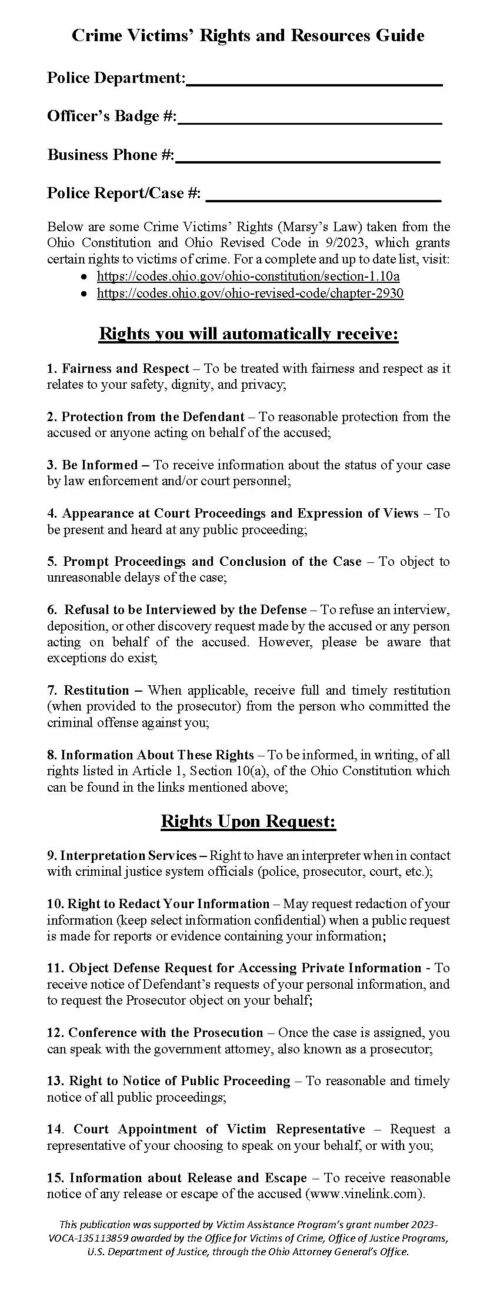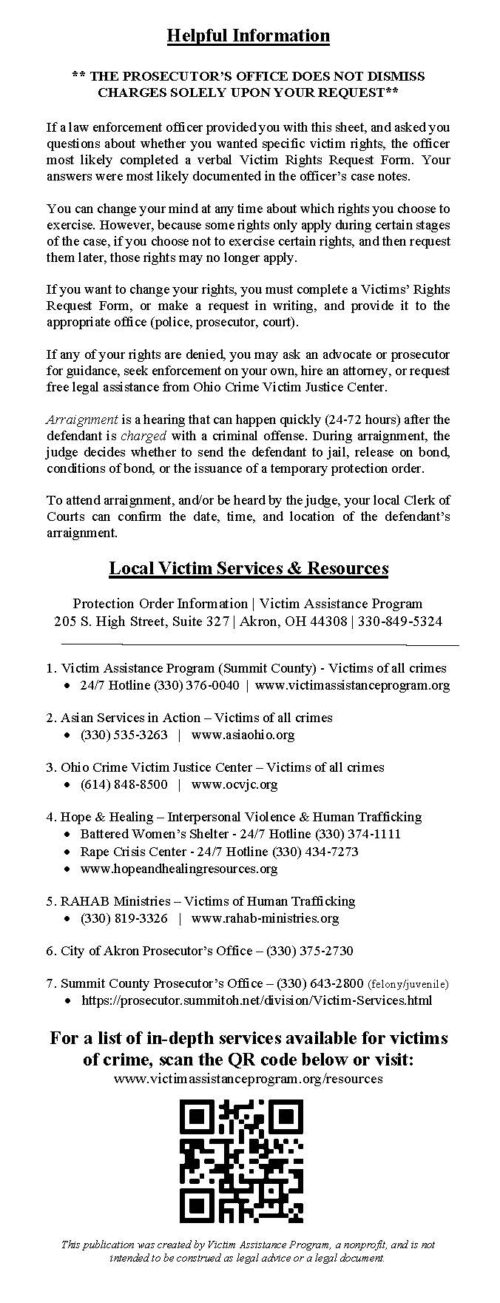Victims' Rights
It’s unfortunate but true; in the United States, offenders often have more rights than victims. While the State of Ohio has made progress over the years in addressing the needs of victims through legal means, there is still a long way to go. Below are links to the most current legislation which is often referred to as Marsy’s Law and/or the Ohio Crime Victims’ Bill of Rights:
- The Ohio Constitution: Article I, Section 10a Rights of Victims of Crime
- The Ohio Revised Code: Chapter 2930 Victim’s Rights
In general, we believe that these laws emphasize “fairness and respect for the victim’s safety, dignity, and privacy.” As recently as April 2023, these laws have been revised through the efforts of numerous victim advocates and legislators across the state. The information provided below is not legal advice but rather resources to help you understand your rights and the options available if they are violated.
Victim Rights Request Form
-
-
- Ohio criminal justice partners (police, courts, jails) are required to provide you with a victim rights request form (also known as a VRR From) throughout the criminal process (investigation through incarceration).
- Some police departments may not provide you with a form to complete during initial contact, but instead, provide you with a Crime Victims’ Rights and Resources Guide (shown in the blue box) and verbally ask you questions about whether you want specific rights. Your answers are most likely documented in the officer’s case notes or report and shared with prosecutors, courts, or the jail. ** As of November 2023, the technology systems in Summit County are not integrated. However, our CEO consistently communicates with the different agencies to ensure ongoing progress is being made.
- Because each city (police, prosecutor, courts) may use different shared technology, you may be asked more than once to complete the VRR form. To decrease your frustration with this likely occurrence, email VAP ([email protected]) a copy of your completed VRR form and we’ll print, email, or mail you copies for you to distribute upon request.
- There is no standard form used between police, courts, and the jail. The form may look different throughout the criminal justice process however they should all include information about: 1. Notification of what your Victim’s Rights are 2. What Rights Do You Want and 3. Your Contact Information.
- You are responsible for informing the criminal justice official working on your case of any contact information or if you change your mind and want to enforce rights you previously declined.
- A Spanish-language version of the form can be found here: VRR Form in Spanish
- Not all victim rights are automatically provided which is why you need to request them by completing a VRR form. Although some are automatic, there are rights that victims must request which are as follows:
-
Automatic Rights – You Do Not Need To Request These Rights
-
-
- The right to be informed of your rights.
- The right to be treated with fairness and respect for your safety, dignity, and privacy.
- The right to reasonable protection from the accused or any person acting on behalf of the accused.
- The right to information about the status of the case.
- The right to refuse a defense interview, deposition, or other discovery request.
- The right to object to defense requests for access to your confidential information, including medical, counseling, school, or employment records, access to your personal devices or online accounts, or other personal information.
- The right to be present at all public proceedings.
- The right to have a support person with you during proceedings.
- The right to tell the court your opinion in public proceedings involving release, plea, sentencing, disposition, parole, and any other hearing that involves victims’ rights.
- The right to object to unreasonable delays.
- The right to full and timely restitution from the offender.
-
Rights That Must Be Requested
-
-
- My name, address, and identifying information are to be redacted (removed) from Law enforcement records Prosecutor records, or Court records.
- Notice of the arrest, escape, or release of the offender.
- Reasonable and timely notice of all public proceedings.
- To confer with the prosecutor at certain points in the case, including before pretrial diversion is granted, before the prosecutor amends or dismisses an indictment, information, or complaint before the prosecutor agrees to a negotiated plea, and before a trial or adjudicatory hearing.
- Be notified of subpoenas, motions, or other requests to access any of my personal information.
- Appoint a Victim’s Representative.
- Interpretation services during contacts with criminal justice system officials.
- Foreign language interpreter or American Sign Language interpreter.
-
What to Do if Your Rights Are Violated
The Ohio Crime Justice Center is an Ohio-based nonprofit organization helping victims whose rights are violated, seek legal remedies to enforce the rights they are afforded. Services include both self-guided toolkits as well as free legal representation.












